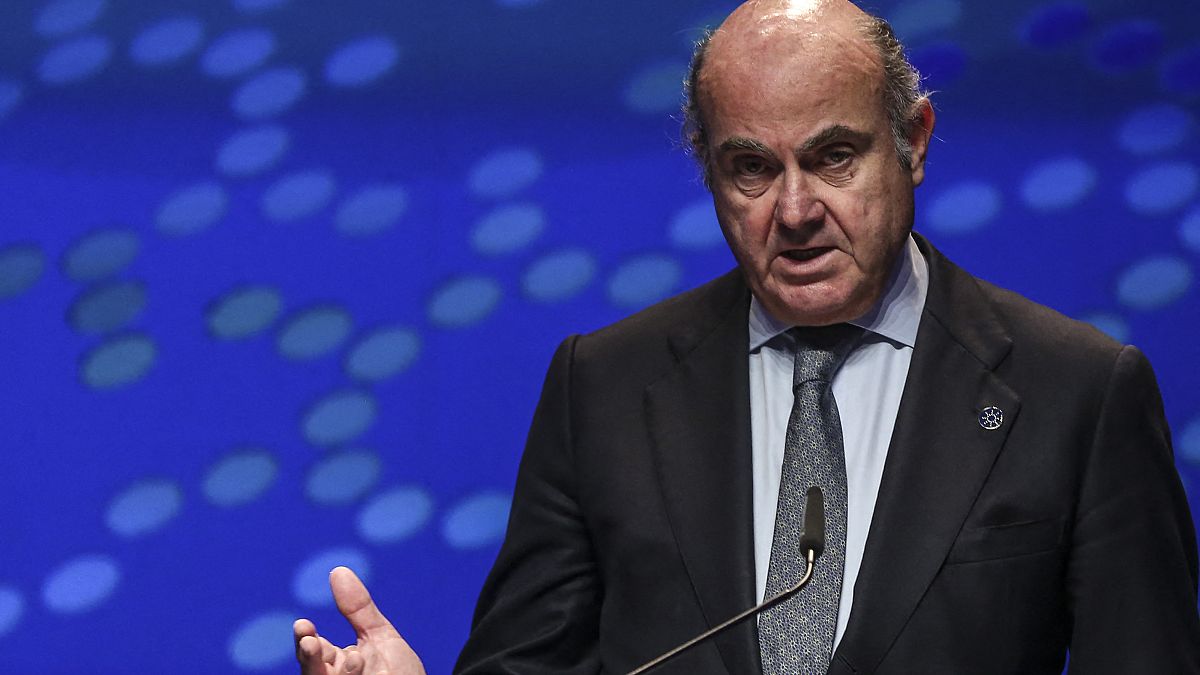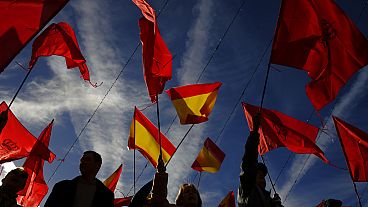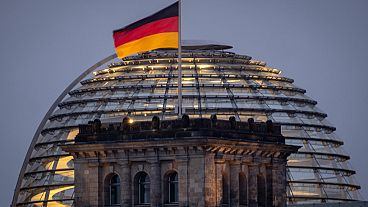Inflation could pick up temporarily while eurozone economic growth will remain weak in the near term, said European Central Bank Vice President Luis de Guindos.
The European Central Bank (ECB) expects eurozone inflation to rebound in the coming months before it starts to decelerate again, as energy and food prices remain a great source of uncertainty amid heightened geopolitical tensions and adverse weather events.
The comments were made by ECB Vice President Luis de Guindos at the 26th Frankfurt Euro Finance Week, which began on Monday.
Eurozone inflation showed a drop in both September and October, for latter the figure stands at 2.9%, according to Eurostat’s flash estimate.
"We expect a temporary rebound in inflation in the coming months as the base effects from the sharp increase in energy and food prices in autumn 2022 drop out of the year-on-year calculation," said de Guindos. "But we see the general disinflationary process continuing over the medium term."
The vice president didn't leave any doubt that the ECB's key interest rates are not going to be cut any time soon, leaving borrowing costs high for an extended period of time for consumers as well as businesses to slow inflation to its target 2%.
"Today, inflation is significantly lower, but it is still expected to stay too high for too long," he said.
The Governing Council of the European Central Bank left its three interest rates unchanged at its October meeting with the key deposit rate at 4%.
According to the ECB's latest forecast, it sees inflation back at target only in late 2025 with consumer price growth broadly stagnating at around 3% for most of 2024.
A few days prior, the president of the ECB Christine Lagarde also commented on the possibility of lowering the key rates, saying that the ECB will not start cutting for at least “the next couple of quarters”, according to the Financial Times.
The firm stand against cutting rates prematurely is also supported by the International Monetary Fund (IMF), which has recently warned that the Middle East conflict could drive up inflation in Europe.
Eurozone may dip its toe into recession before regaining momentum
Before the latest halt, the ECB lifted interest rates to a record high via 10 straight increases. High borrowing costs left eurozone businesses with limited capacity to invest and had a negative impact on domestic consumption too.
Meanwhile, global economic growth is also slowing.
"The growth outlook for the euro area economy has deteriorated further, as global growth momentum slows and tighter financing conditions are increasingly weighing on investment and consumer spending," said de Guindos.
"Weaker industrial activity is spilling over to services," he added. "It is likely that the euro area economy will remain subdued in the near term."
Even the labour market, the bright spot in the bloc's economy, has started to show signs of weakening, de Guindos said.
The latest Eurostat figures suggest that the eurozone economy shrank 0.1% in the three months up to September, and if GDP continues to be in the negative for the last three months of the year, the single-currency area could officially go into recession (recession is usually defined by GDP falling throughout consecutive quarters).
However, the ECB is optimistic that the economic output will rebound in the next year.
"It is likely that the euro area economy will remain subdued in the near term," said de Guidos. "However, it looks set to strengthen again over the medium term, as inflation falls further, household real incomes recover and the demand for euro area exports picks up."



